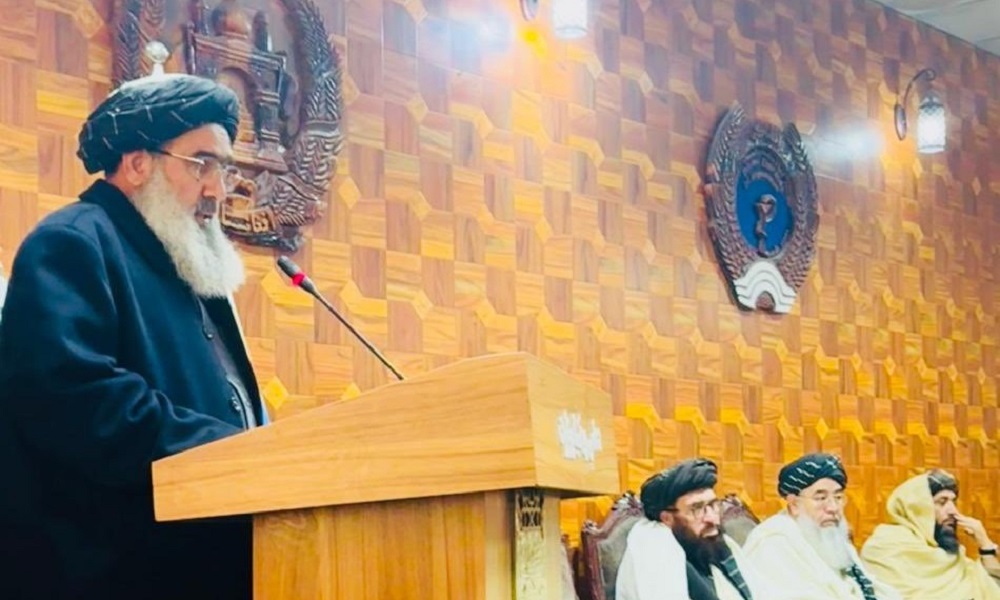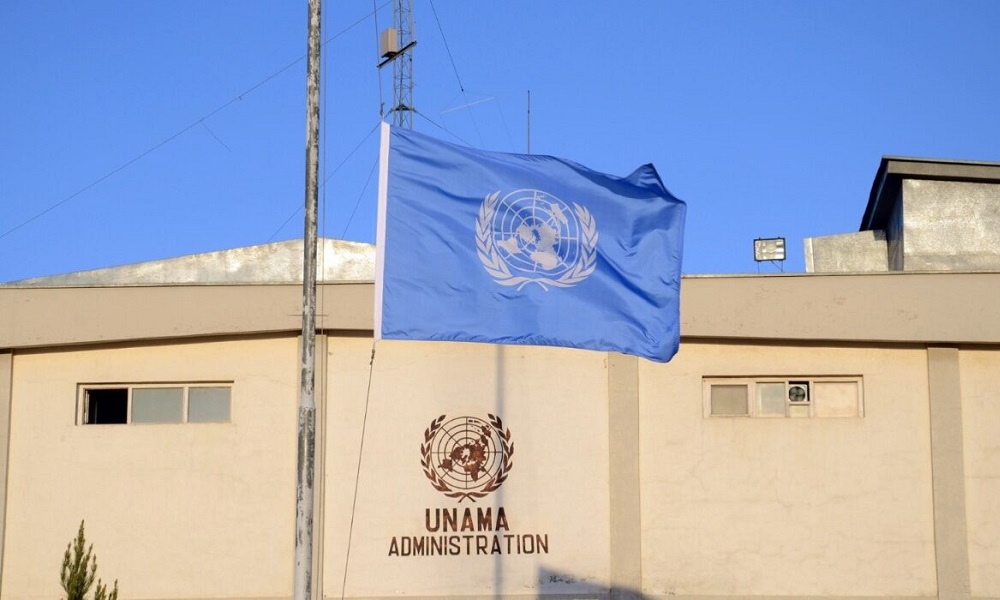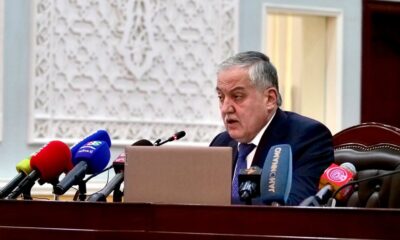Latest News
UNHCR begins airlifting emergency aid to Kabul

The first of three United Nations airlifts carrying lifesaving winter survival kits landed in Kabul on Tuesday amid a fast escalating humanitarian crisis.
In a tweet, the UNHCR said: “We’re scaling up response to provide timely assistance to help displaced and vulnerable people keep safe and warm ahead of the harsh winter.”
The UNHCR also said in a statement that 33 tons of emergency humanitarian assistance for displaced and vulnerable Afghans was unloaded in Kabul on Tuesday,
UNHCR spokesperson Shabia Mantoo said the UNHCR-chartered plane took off from Sharjah in the UAE on Tuesday and arrived in Kabul at 3.30pm local time.
This was the first of three flights scheduled to deliver aid this week.
“Humanitarian needs are rising rapidly in Afghanistan ahead of winter, when temperatures can dip to -25⁰C. Many displaced families lack proper shelter while some of those who have recently returned to their places of origin have found their homes unfit for the cold season,” said Mantoo.
“Weighing 25kg, each winterization kit contains flooring, partitions, and other items to improve tent insulation against the cold. The kits also provide heat resistant protection to enable the installation of a stove,” she said.
Conflict and insecurity have displaced 3.5 million Afghans inside the country, including some 700,000 forced from their homes so far this year.
UNHCR is rushing to provide winter assistance to some 500,000 displaced Afghans, returnees and local host communities by the end of 2021.
The UNHCR said it also continues to distribute other much needed humanitarian assistance to displaced Afghans including emergency shelter kits, food rations, blankets, kitchen sets, stoves, solar panels, solar lanterns, and cash for the most vulnerable.
“We are using land, sea and air routes to bring humanitarian relief into Afghanistan and other countries in the region so we can respond to the increasing needs. Further relief supplies have also been prepositioned in Termez, Uzbekistan, ready to be trucked into Afghanistan as needed,” said Mantoo.
“As we continue to scale up our humanitarian response, more resources are urgently needed to reach all those who will need help to survive the harsh winter ahead,” she said.
* We Give So They May Live Campaign – Donate Here: www.helpafg.org
Ariana News and Ariana Television fully support the Bayat Foundation’s initiative to raise funds to provide emergency aid to poverty-stricken Afghans. As official media partners we appeal to you to help provide food essentials to as many Afghan families as possible.
Latest News
Ministries of Public Health and Higher Education sign cooperation agreement

The Ministry of Public Health announced on Tuesday it has signed a cooperation agreement with the Ministry of Higher Education aimed at expanding scientific, research, educational, and technical cooperation.
At the signing ceremony held in Kabul, Noor Jalal Jalali, Minister of Public Health, said that the agreement would lead to significant improvements in the capacity-building of students and doctors, ensure that research is conducted based on evidence, and enable the collection of accurate data.
Meanwhile, Neda Mohammad Nadeem, Minister of Higher Education, described the agreement as beneficial to the public and to both institutions, stressing the need to train individuals at universities who can contribute to social development and make the country self-sufficient in the public health sector.
Latest News
UNAMA holds new round of Working Group meetings on counter-narcotics and private sector

The United Nations Assistance Mission in Afghanistan (UNAMA) has convened a new round of Doha Process Working Group meetings focusing on counter-narcotics and private sector development.
The meetings, held in Kabul on February 3 and 9, brought together representatives of UN member states and international organizations, officials of the Islamic Emirate, and subject-matter experts.
According to UNAMA, discussions in the counter-narcotics working group centered on efforts by Islamic Emirate authorities and the international community to support alternative livelihoods for Afghans previously dependent on poppy cultivation and the illicit opium trade. Participants also reviewed drug-use prevention and treatment initiatives, as well as law-enforcement measures to curb narcotics production and trafficking.
The private sector working group focused on job creation and entrepreneurship, with particular attention to women’s participation in the private sector, market integration, access to finance, and the development of private banking and financial infrastructure.
UNAMA said both working groups identified priority areas for enhanced engagement and explored more effective and sustainable approaches to supporting Afghan men and women. Participants also examined the linkages between the two areas, noting that private sector development is a key source of livelihoods, while counter-narcotics efforts contribute to Afghanistan’s economic and social stability.
The working groups were established following the third Meeting of Special Envoys held in Doha, Qatar, in June and July 2024, in line with recommendations of the Independent Assessment endorsed by the UN Security Council. The process aims to promote more coherent, coordinated, and structured engagement with Afghanistan’s de facto authorities for the benefit of the Afghan people.
UNAMA added that stakeholders engage in the working groups on an ongoing basis, with full-format meetings convened periodically. Since their establishment, the groups have improved information-sharing, helped mobilize additional resources, and facilitated expert exchanges to strengthen support for the Afghan people.
Latest News
Economic Commission approves national policy for development of agriculture

At a regular meeting of the Economic Commission chaired by Mullah Abdul Ghani Baradar, Deputy Prime Minister for Economic Affairs, the National Policy for the Development of the Agriculture and Livestock Sector was approved.
According to a statement from the deputy PM’s office, the key objectives of the policy include the mechanization of the agriculture and livestock sector; development of agricultural, irrigation, and livestock research and extension systems; management of irrigation systems; support for investment in these sectors; and ensuring public access to high-quality agricultural and animal products.
During the same meeting, the development plan for the fish farming sector was also approved.
Under this plan, through private sector investment, 7,700 small, medium, and large fish production and farming facilities will be established on 6,500 hectares of land in various parts of the country.
The statement added that the implementation of this plan will create direct employment opportunities for 50,000 people and indirect employment for 250,000 others.
-

 Latest News3 days ago
Latest News3 days agoAfghanistan to grant one- to ten-year residency to foreign investors
-

 Sport5 days ago
Sport5 days agoIndonesia shock Japan to reach historic AFC Futsal Asian Cup final
-

 Sport3 days ago
Sport3 days agoIran clinch AFC Futsal Asian Cup 2026 in penalty shootout thriller
-

 Latest News4 days ago
Latest News4 days agoAfghanistan says Pakistan is shifting blame for its own security failures
-

 International Sports2 days ago
International Sports2 days agoWinter Olympics gain momentum as medal table takes shape
-

 Latest News3 days ago
Latest News3 days agoTraffic police receive new cars
-

 Regional4 days ago
Regional4 days agoIran’s FM calls Oman-mediated talks with US ‘good start’
-

 Latest News2 days ago
Latest News2 days agoTajik foreign minister urges international community to help Afghanistan address its challenges
























